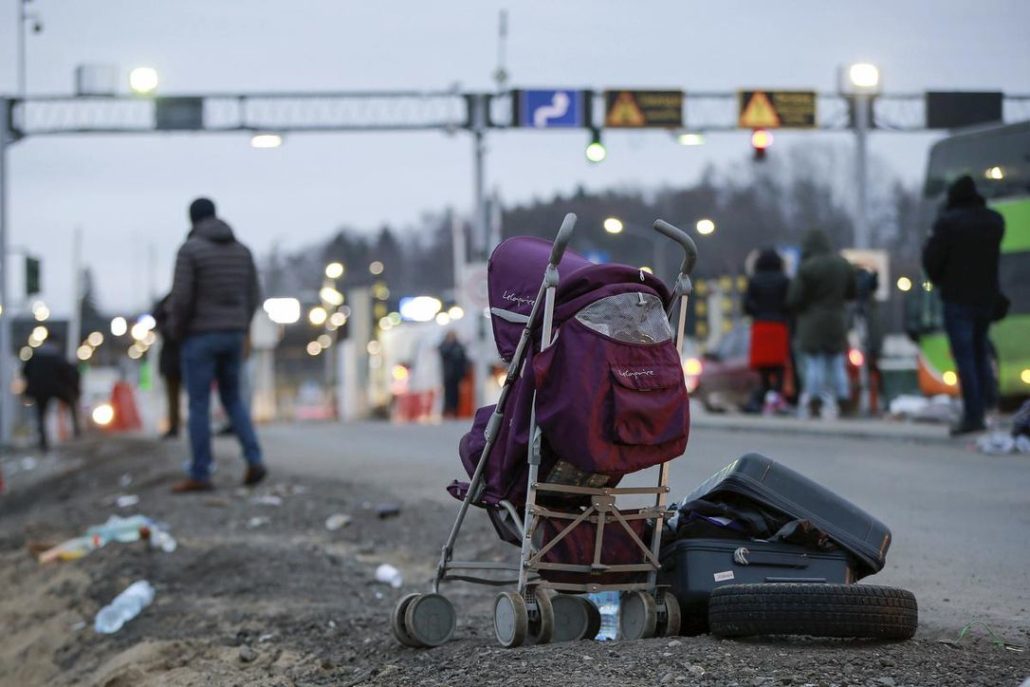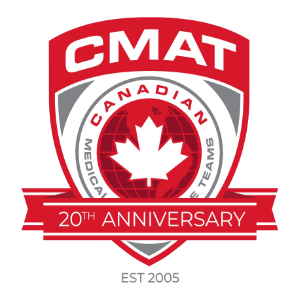2022-03-03 – Canadian Medical Assistance Teams’ Executive Director explained why providing health and medical help is extremely important for countries facing conflicts or refugee crises. The charity has spoken about its work to provide vital medical and healthcare support for the Ukrainian people following the invasion of their country by Russia – and how Canadians can help.
CMAT, which is made up of volunteer health professionals from across Canada, has responded to major global disasters for the past 15 years. The team is preparing to deploy to the Polish border with all-important medical supplies and skilled healthcare providers. It is looking to help the hundreds of thousands of people who have fled Ukraine since Vladimir Putin launched a brutal attack on the country.

The team also hopes to potentially gain entry to Ukraine to be able to provide medical support to those who have yet to cross the border. Today the charity launched an emergency appeal for Ukraine and gave thanks for the generosity of Canadians who have already come forward to offer funds, while also explaining why its work was important.
What is CMAT doing to help the Ukrainian people?
CMAT will shortly have two members of staff on the Polish border looking at the problems the authorities there are going to be facing as huge numbers of people enter the country from Ukraine. At the same time it has partnered with the Registered Nurses’ Association of Ontario to launch an emergency appeal to raise funds to provide emergency healthcare, and recruit additional health care volunteers. The charity says the situation in Ukraine and for those who have fled is desperate, with freezing temperatures at night and the World Health Organization (WHO) reports a serious shortage of oxygen in the embattled country.
CMAT Executive Director Valerie Rzepka said: “Poland is currently taking around 100,000 people a day across the border, which is just an enormous number. “At the moment the local health system is able to absorb these people but very quickly they will get overwhelmed.
“The usual pattern in conflicts is that the first wave of people who get out are often pretty well resourced, might have relatives or friends, and will disappear into the population, but the following waves of people are much more desperate and will have fewer resources, if any. The Polish state will have to deal with this and no doubt they will be requiring assistance.”
Once the response to help refugees has been started, Valerie said CMAT may look to cross the border into Western Ukraine to help people still living there.
What are the challenges facing the charity?
Valerie described how difficult CMAT’s work over the coming days and weeks providing vital health assistance will be. She said: “There are a whole load of challenges around getting into Western Ukraine, but there are more needs on that side of the border. The nearest big city to the border is Lviv and that has swelled in size. People have left to go to Western Ukraine from Eastern Ukraine and from Kyiv and the central area. Large numbers of people are clustering in Lviv. Some are trying to get out, others are staying where they are.
“That is putting enormous pressure on medical and all other public services in Lviv. There will be a need for intervention there, the only question is how. The NGO we partner with in Poland has managed to cross over and establish a corridor, so we will try to use that to try and access Western Ukraine.
Why is it important to provide healthcare and support the emergency appeal?
Since the Ukraine conflict began a whole host of fundraisers and material donation drives to help the Ukrainian people have sprung up, with many focusing on immediate needs for refugees such as food, water, warm clothing, shelter and sanitary products.
Valerie said healthcare sometimes gets overlooked in the minds of the general public but said it was really important to support CMAT’s efforts to get medical equipment and supplies to where they are needed. She also said there is a real need to get vaccinations to Ukraine to help prevent disease spreading as people find themselves living in crowded and poor conditions. She said: “Whenever you’ve got mass population movements healthcare is absolutely essential. I would say it’s the third most important thing after shelter and water. Underlying health conditions are exacerbated by stress, difficulties in living and poor food or inadequate shelter or warmth. Whether it’s running out of blood pressure pills or not having insulin for your child with diabetes, without these things substantial parts of the population will be in real trouble. Vaccinations are really important too, to stop outbreaks of disease in densely packed refugee conditions. This is particularly important as we are not yet out of the COVID-19 pandemic.”
“We have the capacity to provide primary health care, and emergency stabilization.
Valerie said the needs of people living in Eastern Ukraine are greater still but there are major safety questions around deployments there.
She also said it was clear that the full situation will not be apparent for some days yet and it is equally obvious the conflict and the humanitarian needs it generates are not going to be over quickly.
What has CMAT made of Canada’s response to Ukraine so far?
“Embracing our deep historical ties, and in many cases our roots in both Ukraine and Poland, Canadians have stepped up and have shown considerable sympathy for the Ukrainian people and have expressed a desire to help through their immense generosity,” said Valerie. “It makes me proud to be Canadian, and especially Polish-Canadian.”
You can make a tax deductible donation to the CMAT emergency appeal on CanadaHelps here: https://www.canadahelps.org/en/dn/70689
Tax-deductible donations can also be made by Interac e-transfer or PayPal to: [email protected]



